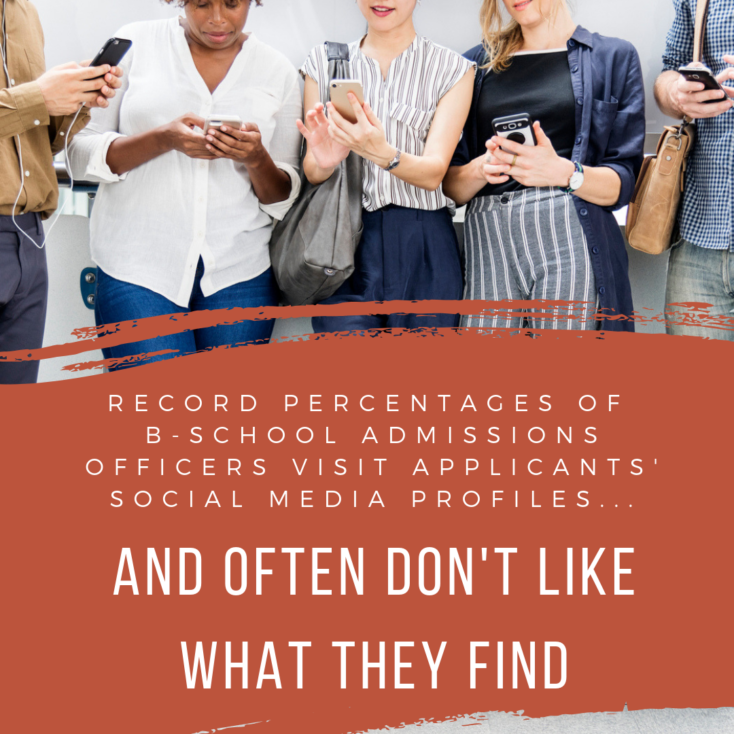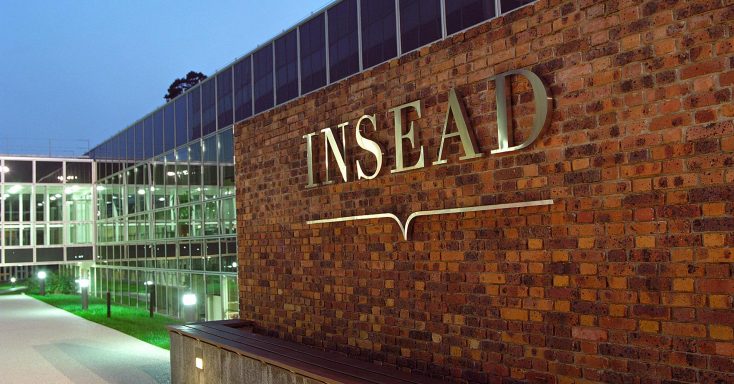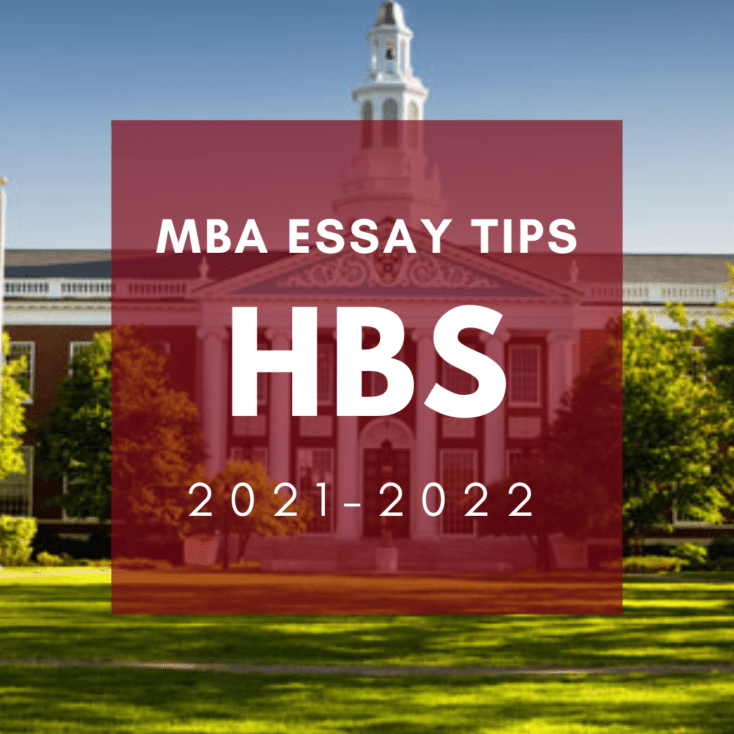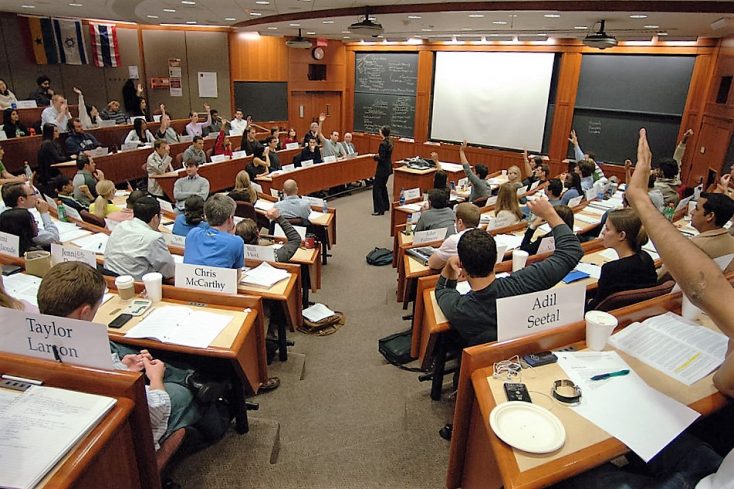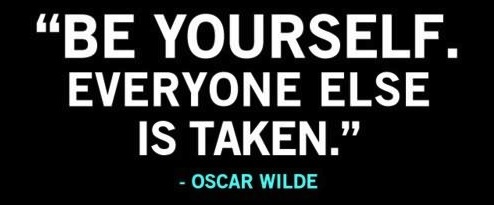Events & Promotions
|
|

GMAT Club Daily Prep
Thank you for using the timer - this advanced tool can estimate your performance and suggest more practice questions. We have subscribed you to Daily Prep Questions via email.
Customized
for You
Track
Your Progress
Practice
Pays
Not interested in getting valuable practice questions and articles delivered to your email? No problem, unsubscribe here.
- Nov 20
07:30 AM PST
-08:30 AM PST
Learn what truly sets the UC Riverside MBA apart and how it helps in your professional growth - Nov 20
10:00 AM EST
-10:30 AM EST
If you’re applying to Columbia, NYU Stern, or Yale SOM, you need more than strong stats. Each school defines “leadership” differently, and your essays must reflect that. Join Sia Admissions founder, Susan Berishaj on November 20th - Nov 20
09:00 PM IST
-10:00 PM IST
Join our free expert-led Essay Workshops to discover how to choose impactful stories, highlight your core values, and align your background with each school’s distinct culture, making every word truly count. - Nov 21
08:30 AM EST
-09:15 AM EST
Get the inside scoop on what makes Emory’s Goizueta Business School great, learn how you can present a strong MBA application, and connect with an Admissions Director to get your questions answered. - Nov 21
09:30 PM IST
-10:30 PM IST
Learn how to craft powerful, authentic essays by mastering the 3 “WHYs” every top MBA program looks for: Why MBA, Why Now, and Why This School. - Nov 24
08:00 PM PST
-09:00 PM PST
Inquire for a free profile evaluation and guarantee statement for possible admits and scholarships!
Kudos
Bookmarks
| FROM Stacy Blackman Consulting Blog: Focus on These 5 Areas for MBA Admissions Success |
|
[img]https://www.stacyblackman.com/wp-content/uploads/MBA-APPLICATION-JOURNEY-734x413.png[/img] The MBA admissions process is rigorous and time-consuming. Therefore, having a strategy to guide you will go a long way toward helping you manage this experience. Admissions committee members evaluate MBA applicants across a host of components, so your goal is to maximize the impact of each one. Turn your focus to these five specific areas for MBA admissions success in the fall. Remember, each touchpoint is an opportunity to tell the admissions office something new about yourself. As we noted on [url=https://find-mba.com/articles/your-guide-to-the-entire-mba-application]Find MBA[/url], it’s a good thing that the adcom will judge you on your entire package. After all, we’re so much more than just our jobs, our grades, and our volunteer experience. Focus Areas for MBA Admissions Success [b]GPA[/b] Your GPA is a significant element of your MBA application. Besides your admissions test score, it’s a clear signal of your ability to handle the academic rigor of business school. Unfortunately, it is also one of the only components already set in stone. Keep in mind that a 3.5 or better undergraduate GPA is acceptable for most MBA applications. Check the mean standard for admitted students at your target programs to see whether you have a problem to overcome. If you have a [url=https://www.stacyblackman.com/blog/3-ways-to-offset-a-low-gpa-when-applying-to-business-school/]below-average GPA[/url] or low grades in quantitative/business classes, consider taking an online course this summer. Earning A’s in college-level quant courses will help convince the admissions committee that you can succeed in a challenging, fast-paced MBA program. Also, taking steps to shore up those weaknesses shows maturity and your ability to balance academics with work. [b]Career Progression[/b] When applying to a top-tier business school, show a clear path of professional growth in your application. The admissions team likes to meet potential students who have the drive to advance their skills and leadership abilities continually. [img]https://www.stacyblackman.com/wp-content/uploads/man-in-black-suit-achieved-an-accomplishment-3779409-734x489.jpg[/img] If this is a trouble spot for you, it’s time to get creative. Think of ways to add value and continue to develop your career. If an official title change is not in the cards in the coming months, find other ways to take on more senior responsibilities at work. Ask to join a high-level project. Take on a leadership role. If you have a new member on the team, volunteer to mentor that person. Even within a flat organization with no title change, you can still [url=https://www.stacyblackman.com/blog/focus-on-career-progression-results-for-a-successful-mba-resume/]show career progression[/url] on your resume. Review your accomplishments and see how you can portray them in a way that reveals your professional growth. Each time your responsibilities grew, you can describe it in a bullet point with the date. For example: [list] [*]Directed a staff of three in servicing 45 client relationships of global corporations with more than $25B in assets. (2020) [/*] [*]Contributed to the growth of $34B business through a mix of market research, marketing, and client servicing. (2019-2020)[/*] [/list] The essays also provide ample opportunities to summarize career progress and explain the structure of your organization. [b]Admissions Test[/b] Unlike your GPA, business school aspirants have a great deal of control over this aspect of the application. Try to get the test out of the way as soon as possible. Then you can focus your energy on the essays and recommendation letters during the summer months. Explore your options and take a practice test. Consider taking a free or paid prep course, studying with a friend, or hiring a tutor if possible. These strategies can help you maintain discipline while studying. If English is not your first language, factor this into your plan as well. After all, preparation is essential for most candidates to excel on the test. If you received a below-average score the first time, plan to [url=https://www.stacyblackman.com/retake-gmat/]retake the exam[/url]. Reflect on whether you genuinely gave it 100 percent the first time around. Admissions committees often look favorably upon applicants who try to improve their scores. A score boost can help clear the path for MBA admissions success. [b]Recommendation Letters[/b] The admissions committee pays close attention to the content of recommendation letters in support of your MBA candidacy. Therefore, you should only choose recommenders who will champion your business school aspirations. A lukewarm letter of recommendation could do more damage to your chances of admission than a lower GPA or test score. Few applicants realize how much they can influence their recommenders to help them draft powerful, persuasive letters of support. While you should never write the letter yourself, you can guide your recommender to focus on key traits—leadership, communication skills, integrity, innovation mindset—that you wish to highlight. [img]https://www.stacyblackman.com/wp-content/uploads/Highly_Recommended-2-734x309.jpg[/img] Remind them of at least three compelling, work-related anecdotes that show how you contributed to a project, led a team, inspired others, communicated effectively, etc. Your recommenders can help you stand out from thousands of other highly qualified applicants by painting a clear picture of both the personal and professional you. Recommenders need to do a lot of work on your behalf. Start identifying who you want to approach now and have a preliminary chat with them about your MBA plans. Once they are on board, begin assembling materials so you can guide them to write the [url=https://www.stacyblackman.com/blog/mba-recommendation-letter/]most effective letter[/url] on your behalf. [b]Essays[/b] While most schools have yet to publish their essays for the 2020-2021 season, you can get a good idea of the types of stories you will need by reading last year’s application. Knowing that you will have to describe a leadership experience may motivate you to take on a new leadership role – in or outside of work. Realizing that you will see questions about your level of community involvement may push you to step up your volunteering efforts. [img]https://www.stacyblackman.com/wp-content/uploads/board-3699939_1920-734x489.jpg[/img] It is also a good idea to [url=https://www.stacyblackman.com/blog/3-unconventional-steps-to-writing-great-mba-essays/]begin brainstorming[/url] your answers to two questions that will crop up in either essay questions or the MBA interview. First, what are your career goals? And second, why do you need an MBA now? Reflect on your background and what stories you could share. If you identify gaps, create a plan to fill them. We recommend that candidates allocate two to three hours each time they sit down to work on their essays, especially for the first few drafts. Non-native English speakers may find they need to allow even more time for their applications, particularly writing, revising, editing, proofing, formatting, and inputting essays. That said, applicants should also avoid the “marathon session.” Few people remain sharp or creative during eight hours of writing and editing. Summer is right around the corner. Now is the time to launch into your MBA application journey with an eye toward MBA admissions success. Make this the year you take those vital first steps toward transforming your career. The post [url=https://www.stacyblackman.com/mba-admissions-success/]Focus on These 5 Areas for MBA Admissions Success[/url] appeared first on [url=https://www.stacyblackman.com]Stacy Blackman Consulting - MBA Admissions Consulting[/url]. [img]https://feeds.feedburner.com/~r/StacyBlackman/~4/M3puvRyXLrw[/img] |
This Blog post was imported into the forum automatically. We hope you found it helpful. Please use the Kudos button if you did, or please PM/DM me if you found it disruptive and I will take care of it.
-BB
Kudos
Bookmarks
| FROM Stacy Blackman Consulting Blog: Tips for Applying to B-School After Years in the Workforce |
 The average age of business school applicants has been trending downward for the past decade. With that, work experience expectations have shifted as well. But not everyone is ready or in a position to take the business school plunge at 26 years old. If you want to pursue an MBA in your early-30s and beyond, consider these specific tips as you put together your application package. Show Career Progression When applying to a top-tier business school, you’ll need to show the admissions committee a clear path of professional growth. The admissions team wants to admit students who continually seek to learn and advance their skills and leadership abilities. Even if you have held the same job for several years, you should demonstrate career progression. This can be in the formal sense, with increasingly higher-level job titles. Or by pointing out how you have gradually taken on greater responsibilities. Coach your recommenders to address this upward trajectory in their letters of support specifically. That will help convey your dedication to your professional development. Also, make sure to ask a current or recent manager for that recommendation. A letter from a supervisor who worked with you eight years ago might raise a red flag. If you select a recommender from the more distant past, make sure that you have kept in touch, and they can speak to your professional progression and work habits now.  If you have had several jobs, don’t worry about squeezing all of them onto the MBA resume. Highlight only the most critical positions and find ways to show career progression and results on your MBA resume. Show Strong Leadership Understandably, younger applicants won’t have many examples of leadership one year out of school. But, as time goes on, expectations increase, and the ability to manage and inspire others will become more important. The best MBA programs value outstanding leadership. If you are applying to Harvard Business School in your mid-30s, you better have already developed tremendous leadership skills and have a lot to show for them. For your essays, find professional or personal anecdotes that show how you have galvanized or improved the work of others. Try to paint a vivid picture of your most significant leadership challenge or of a time when you led with integrity or motivated a team to achieve a shared goal. You want to show how you always attempt to do more than a good job and strive to leave your mark on whatever situation you’re in.  As prepared as you are, you need to convince the schools that you still have room for improvement. And that can only come from the education and experiences of an MBA program. Let them know exactly what they offer that will help you further hone your leadership or technical skills. Choose the Right Type of Program If you’re quite advanced in your career, research what type of program best fits your professional goals and personal life. You may find that a part-time MBA program or an executive MBA program will allow you to meet your goals with greater flexibility and less disruption. When we worked with Claudine, she was in her late-30s and held an executive-level position in finance at a large consumer products company. She had reached a career plateau in her firm and thought an MBA would take her to the next level. We considered any of the three format options could help her achieve her goals. While excited by the range of social and extracurricular activities available in a full-time MBA program, Claudine had an extremely demanding family life with two small children. She didn’t think she could take advantage of the many social activities most full-time MBA students participate in.  Ultimately, her desire for a flexible way to expand her skills and tap into the network available from a strong program led Claudine to look most closely at an executive MBA. Claudine ended up having great success at the joint EMBA program between the University of California—Berkeley Haas School of Business and Columbia Business School. Business school admissions committees always seek applicants with diverse interests and backgrounds. Older candidates have numerous attractive qualities going for them. The key is to make sure all those great qualities stand front and center in your MBA application. The post Tips for Applying to B-School After Years in the Workforce appeared first on Stacy Blackman Consulting - MBA Admissions Consulting. |
This Blog post was imported into the forum automatically. We hope you found it helpful. Please use the Kudos button if you did, or please PM/DM me if you found it disruptive and I will take care of it.
-BB
Kudos
Bookmarks
| FROM Stacy Blackman Consulting Blog: Social Media Tips for MBA Applicants |
 We’re going to tell you something you probably already know. Namely, if you’re applying to an MBA program this year, be careful about what you post online. Adcom members may search your name before admitting you to their program. It doesn’t end with the admissions committee, either. Let’s say you are invited to interview with a local alum; that person might try to find out as much information about you as possible before your chat. Once you’re at school, potential internship and full-time employers could perform an even more extensive online background check. Your fellow classmates might do some digging, too! You don’t want something written in haste to derail your chances of getting in. That’s why you should review these social media tips for MBA applicants asap. Rest assured, being active on Twitter, Instagram, Facebook, and other social media platforms isn’t a negative. In fact, savvy candidates actually use these venues to boost their credibility. For example, you can also use social media to solidify the good impressions made through your application materials. Try these social media tips on for size Let’s say that you’re hoping to switch careers after business school. One of your essays talks about your intention to work for a company that develops clean-energy options in third-world countries. You could tweet links to articles or books you’re reading on the subject. Maybe you post about a local conference you attended. Perhaps you give your take on the most promising advancements in the field. Or, maybe your career to date has led you to become somewhat of an expert on microfinance. Reinforce that reputation through your online presence. Let people know when you were quoted in an article or asked to be on a panel.  Are you a marketing guru? It would be easy to weigh in on — or share — what some of the biggest brands are doing on social media. The key is to keep things professional and on point. It’s absolutely fine to let your personality shine through, too — just as it should in your essays. And you’re already following the programs you’re applying to, right? Doing so could be a great way to get insight into a school that you could work into your essays. Remember, if you don’t consider social media to be another way to strengthen your candidacy, you may be missing out on a great opportunity that other MBA applicants will most certainly take advantage of. Think of it this way: 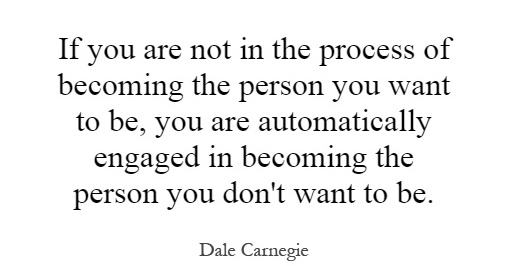 Do your social media profiles need a makeover? For a b-school applicant, proper management of social media channels can help you expand the scope of your application without infringing on limited essay word counts. Check out the SBC Social Media Strategy Review, and let us help set you up for a lifetime of online social success. The post Social Media Tips for MBA Applicants appeared first on Stacy Blackman Consulting - MBA Admissions Consulting. |
This Blog post was imported into the forum automatically. We hope you found it helpful. Please use the Kudos button if you did, or please PM/DM me if you found it disruptive and I will take care of it.
-BB







